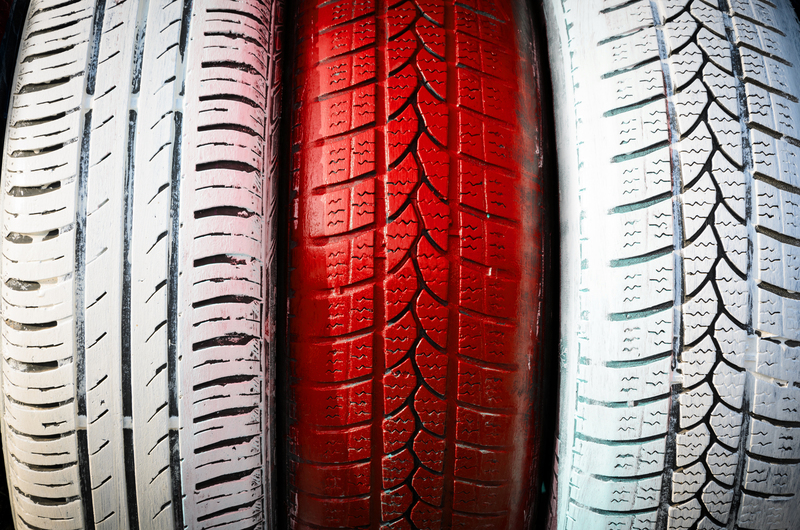Purpose of a Waste Transfer Note
Posted on 28/08/2024
In today's environmentally conscious world, the proper management and disposal of waste have become paramount. One essential tool in the documentation and regulation of waste is the Waste Transfer Note (WTN). This article will delve into the purpose of a Waste Transfer Note, outlining its importance, benefits, and best practices regarding its use.
What is a Waste Transfer Note?
A Waste Transfer Note is a legally required document in many jurisdictions that provides essential information about the transfer of waste from one party to another. It typically includes details about the type and quantity of waste, the parties involved in the transfer, and the date and location of the transfer. The aim is to create a clear audit trail from the point of waste generation to its final disposal or recycling.

The Role of a Waste Transfer Note
The primary purpose of a Waste Transfer Note is to ensure that waste is managed in a responsible and transparent manner. It serves several critical functions, including:
- Regulatory Compliance: Ensuring that waste transfer activities meet local, national, and international regulations and standards. This helps to prevent illegal dumping and promotes environmental protection.
- Traceability: Providing a traceable record of waste movements, essential for audits and inspections by environmental agencies.
- Accountability: Holding the parties involved in waste transfer accountable for the proper handling and disposal of waste, reducing the risk of environmental contamination and public health hazards.
- Financial Tracking: Facilitating accurate financial records for waste management services, which is essential for billing and cost management.
Key Components of a Waste Transfer Note
A properly filled Waste Transfer Note contains several key pieces of information:
- Details of the Waste Producer: Information about the party generating the waste, including their name, address, and contact details.
- Description of Waste: A detailed description of the waste being transferred, including its type, quantity, and any relevant characteristics or hazards.
- Details of the Waste Carrier: Information about the party responsible for transporting the waste, including their name, address, and registration details.
- Details of the Waste Destination: Information about the final destination of the waste, including the facility's name, address, and permit details.
- Transfer Date and Time: The specific date and time when the waste transfer takes place.
- Signatures: Authentication from both parties (the waste producer and carrier) confirming the accuracy of the information provided.
Pros and Cons of Using Waste Transfer Notes
As with any regulatory tool, there are both advantages and disadvantages to using Waste Transfer Notes.
Pros
- Environmental Protection: Ensures waste is properly managed, reducing the risk of illegal dumping and environmental harm.
- Regulatory Compliance: Helps businesses adhere to legal requirements, avoiding fines and legal actions.
- Accountability: Establishes responsibility among waste producers and carriers, promoting better waste handling practices.
Cons
- Administrative Burden: Completing and managing WTNs can be time-consuming and require significant administrative resources.
- Costs: Implementation and maintenance of WTN systems can involve costs for businesses, especially smaller operations.
- Complexity: Ensuring accurate and compliant WTNs can be challenging due to the complexity of waste classification and regulatory requirements.
Tips for Effective Waste Transfer Note Management
To make the most out of Waste Transfer Notes and ensure compliance, consider the following tips:
- Training: Train your staff on the importance and proper handling of WTNs to ensure accurate and compliant documentation.
- Digital Systems: Utilize digital tools and platforms to streamline the creation, storage, and management of WTNs, reducing administrative burden.
- Regular Audits: Conduct regular audits to ensure WTNs are correctly completed and retained, facilitating compliance and traceability.
- Clear Communication: Maintain clear communication between waste producers, carriers, and disposal facilities to ensure all parties understand their responsibilities.

Key Takeaways
Waste Transfer Notes play a critical role in waste management by ensuring regulatory compliance, promoting accountability, and protecting the environment. While they come with certain administrative burdens, their benefits in terms of traceability, accountability, and environmental protection far outweigh the drawbacks. By following best practices and leveraging digital tools, businesses can manage WTNs efficiently.
Conclusion
The significance of Waste Transfer Notes in modern waste management cannot be overstated. They ensure that waste is handled responsibly, from the point of generation to its final disposal, safeguarding both the environment and public health. By understanding their purpose and implementing best practices, businesses can not only comply with regulations but also contribute to a more sustainable future.
Latest Posts
Innovations Aiming to Reduce Ocean Waste
Reducing Waste in Christmas Celebrations




 020 3743 9508
020 3743 9508


